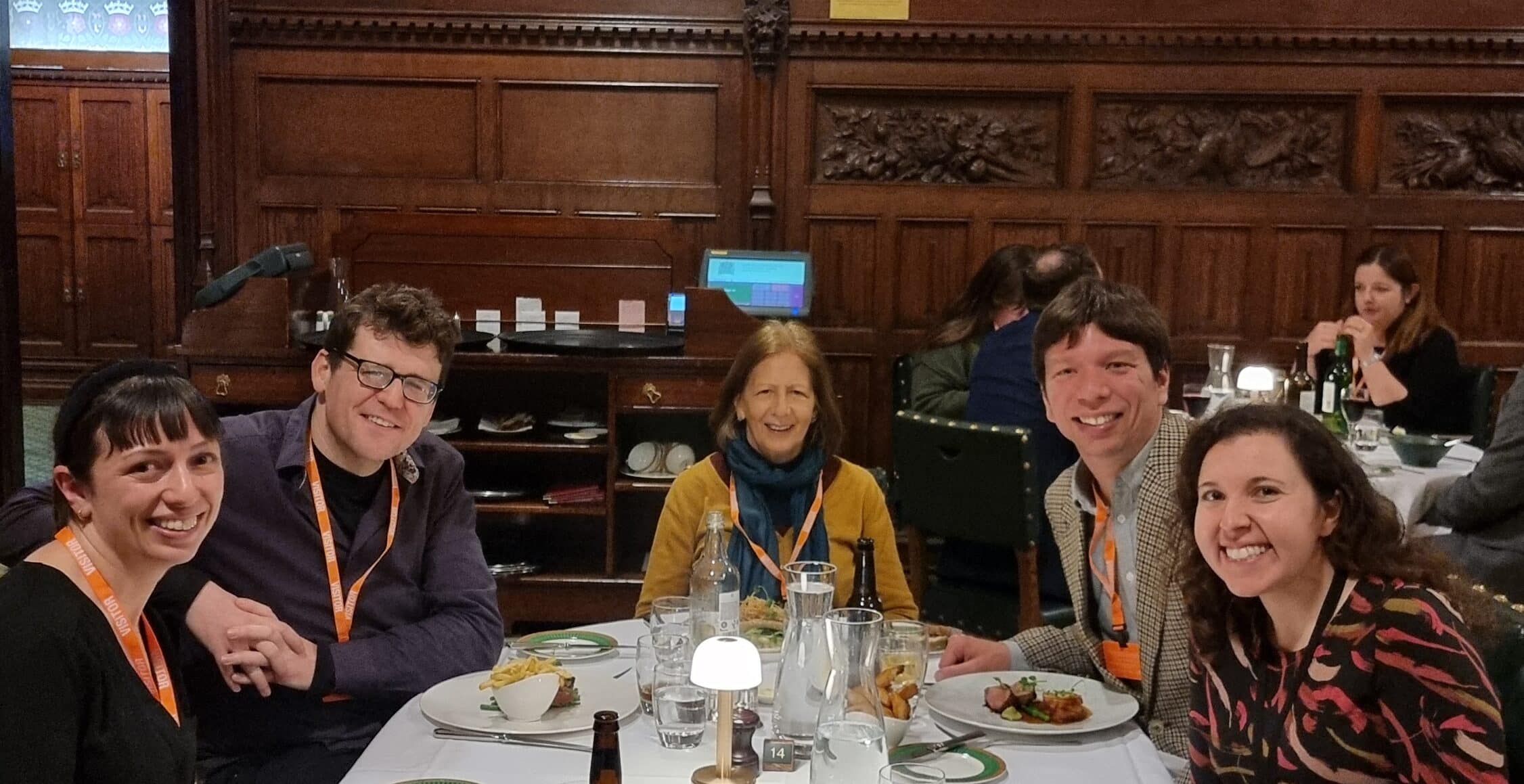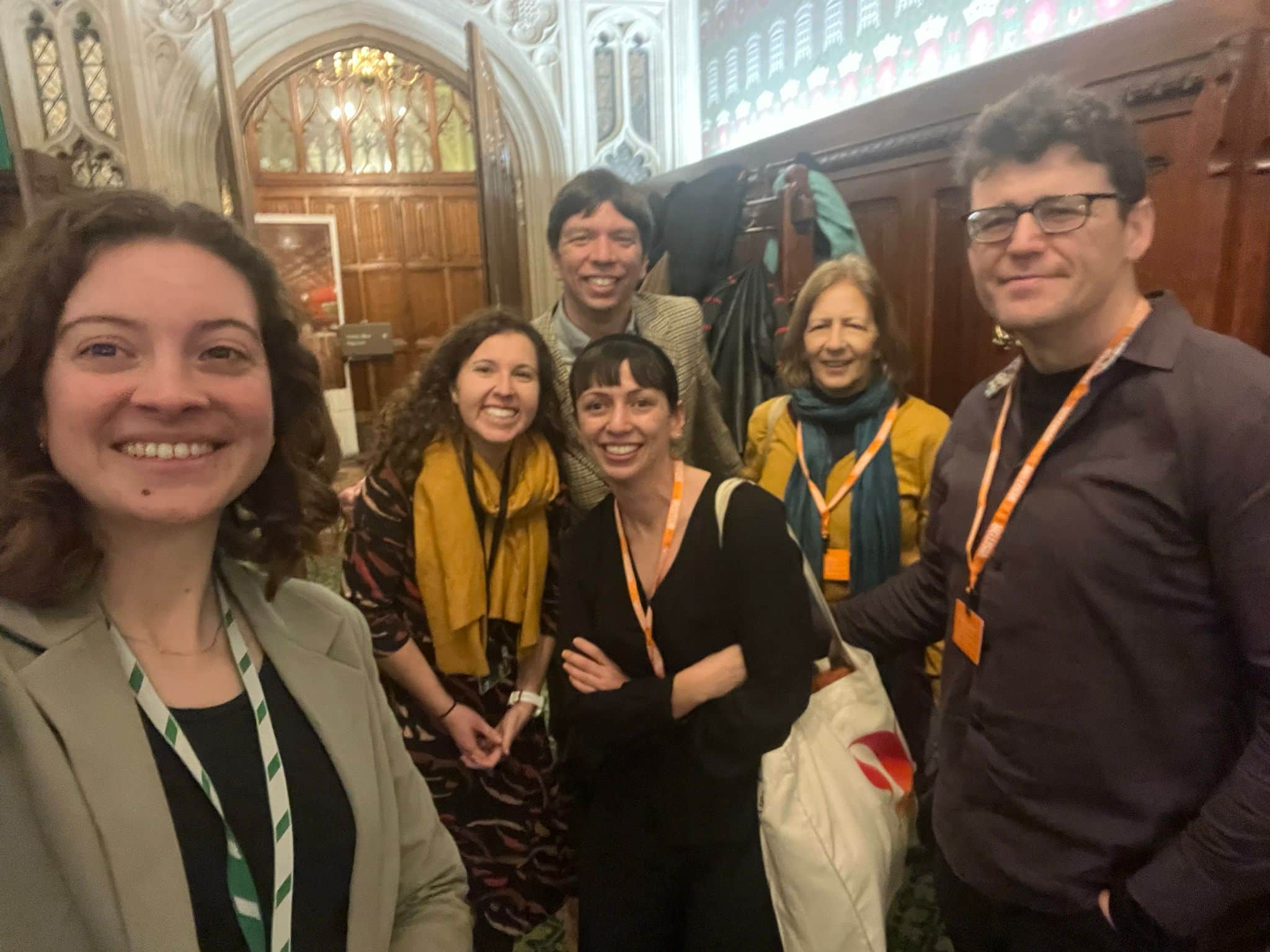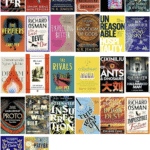I’d never seen or read Shakespeare’s The Merchant of Venice before, but I did know about its central character: Shylock, the Jewish moneylender. And I had some notion in my head that the play was ‘ambiguous’ on where it really stood: anti-semitic tropes and prejudices, but somehow combined with Shylock’s famous insistence on our common humanity. If you prick us, do we not bleed? If you tickle us, do we not laugh? If you poison us, do we not die?
Thanks to Alix’s generous gifting of tickets for us to see The Merchant of Venice 1936 last month (thank you!) I now have a much better handle on these questions, and such a good reminder that the past is a strange, distant place. The production itself was extraordinarily good – I’ll get to that in a moment. But the play itself is nothing like an ‘ambiguous’ play you might imagine today. That play would be full of characters voicing unacceptable things, and the ‘controversy’ would be: is the character channelling the playwright, or not? Does that matter? Are we being primed to agree or made to feel uncomfortable? What’s acceptable to give voice to?
The Merchant of Venice is nothing like that, because it’s unashamedly antisemitic. If William Shakespeare was on social media, he wouldn’t post a screenshot from the Notes app explaining that he was “very sorry for any offence caused” but “wanted to provoke a discussion about the discrimination faced by Jewish communities in urban Italy”. He would be baffled that you were baffled. His depiction of Jews is like his depiction of witches in Macbeth. It’s a common reference point shared with his audience, not a point of controversy.
So why is Shylock given such a humanising speech? How could someone write the words, and not be moved by them? Well – shocker – because Shakespeare was an amazing playwright! A world historical artist doesn’t write a whole script around a pantomime villain with no depth. And besides, antisemitism is not the point of the play any more than ‘witches are bad’ is the point of Macbeth. It’s much more about the hypocrisy of the Christian characters: how they fail to live up to the virtues and ethics which ‘should’ (not my framing) make them ‘better’ than the Jews.
This is obviously not a critique of William Shakespeare, the person. I’m not cancelling people from the 16th century. Yet it has unsettling conclusions. The Merchant of Venice is a great play, but I think it’s unarguable that it would have been ‘better’ for human history had it never been written. Shylock had a huge influence on depictions of Jewish people for centuries, and not in a good way. The turn towards a more sympathetic portrayal on stage only took place at the beginning of the 19th century. But now we’ve passed through the valley of time, and all the damage has already done, so what to do now?
I think the answer is exactly The Merchant of Venice 1936. Tracy Ann-Oberman is electrifying as a female Shylock, living amidst the rising tide of British fascism in London’s East End. The words are the same, but the production is a tour de force of acting and direction, and of how much power they have to cast the same words in a different light. There’s a famous scene where Shylock discovers his/her daughter Jessica has run off to elope with a Christian, stealing a load of coins and jewellery in the process. On the page, it seems very clear that he’s more upset about the money. On stage, Shylock’s despair is more of a mental breakdown, her words unmoored from the real grief underneath. And so on and so on.
I loved it, and I loved watching something with an audience struggling with an alien culture. (There was a literal gasp at Shylock’s forced conversion to Christianity, which makes me laugh because this provokes a much stronger and more visceral reaction today than the threat of death!) And what I’m not saying is “oh, what a timely reminder of the evils of prejudice”, as if somehow we were at 95% racism in 1596 and then maybe we dropped to 50% by 1996 but now we’re back up to 65% so it’s a good moment for an intervention. Of course, at some very reductionist level there are endemic human evils – like group hatred and dehumanisation – which always reoccur, and should always be resisted and fought. But at a less abstract level, in specific cultural norms, you can really feel the tectonic plates shift over time.
Also in January, Randi and I went to see Conclave at The Ritzy in Brixton, after my mum took pity on me for having managed 0 cinema outings last year and suggested this to start 2025 on a better footing. I have to say, it didn’t make me feel optimistic about the format: the cinema was nice, and our screen was surprisingly full, but I was shocked at how cheap and terrible the trailers have become. It felt like we were huddled together for a final communion before our church was shut down. Fortunately, Conclave itself was immensely enjoyable. It might not be very deep – and we’re unsure whether the filmmakers know that – but it’s a rollicking adaption of Robert Harris’s (presumably!) page-turning novel about the election of a new pope, and the performances are excellent.
A few days later I could thank my mum for her recommendation in person at Strangers’ Dining Room in Parliament, which Randi organised as a suitable august venue for a family dinner with Tash and Cormac. Outside we also had a quick catch-up with Tash’s friend Sarah, who – weirdly – is now an MP. (To be clear, it’s not weird that she’s an MP. It’s just weird that my younger sister’s friend from school is an MP.)
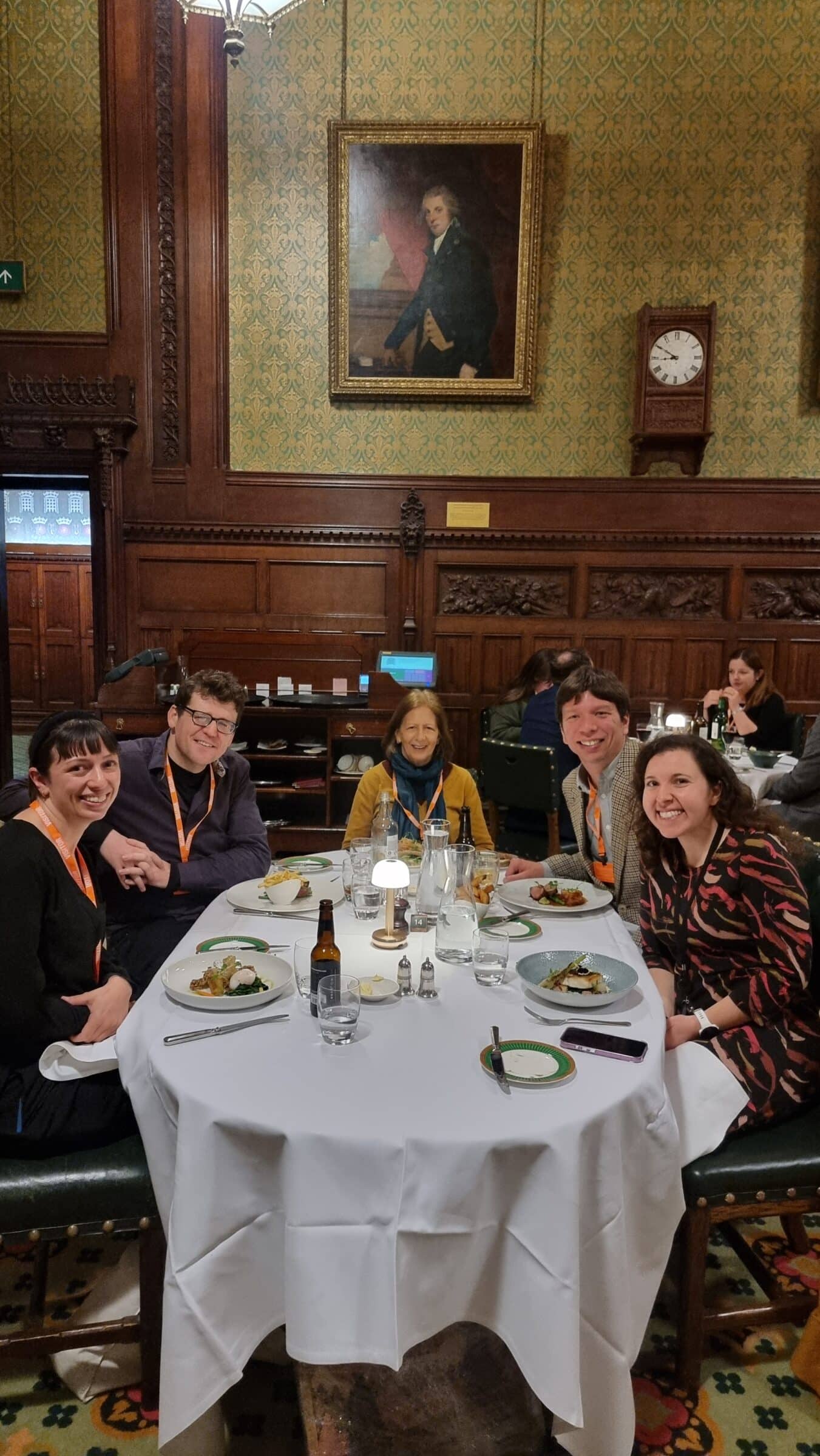
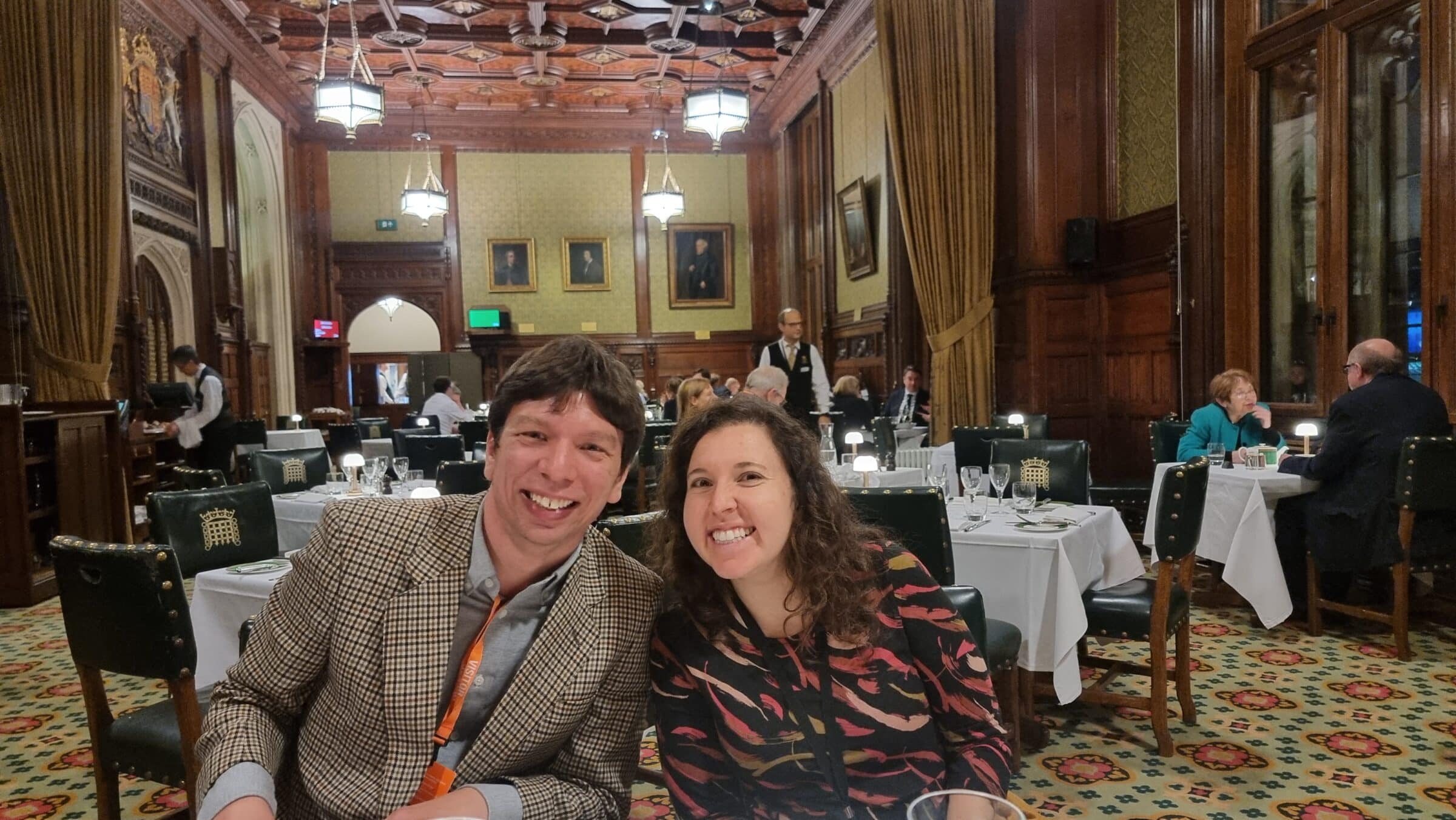
I’m also pleased to say that my mum and I are now laptop twinsies (RIP old laptop, lost too soon to water damage) so we had a quick handover session at the weekend with her new baby. Otherwise, Randi and I have been doing lots of planning for the year, interspersed with occasional games of Carcassonne – it’s been a while! – and trying out new expansions with various levels of success. (Capturing meeples via The Tower was not a hit.) We also finished the first season of Severance – what an amazing finale! – and saw Joshua Radin and Ellen Krauss perform one night in Camden. Joshua was very popular with teenage Randi and he does have an infectious American optimism. Plus Ellen Krauss was very good too!
